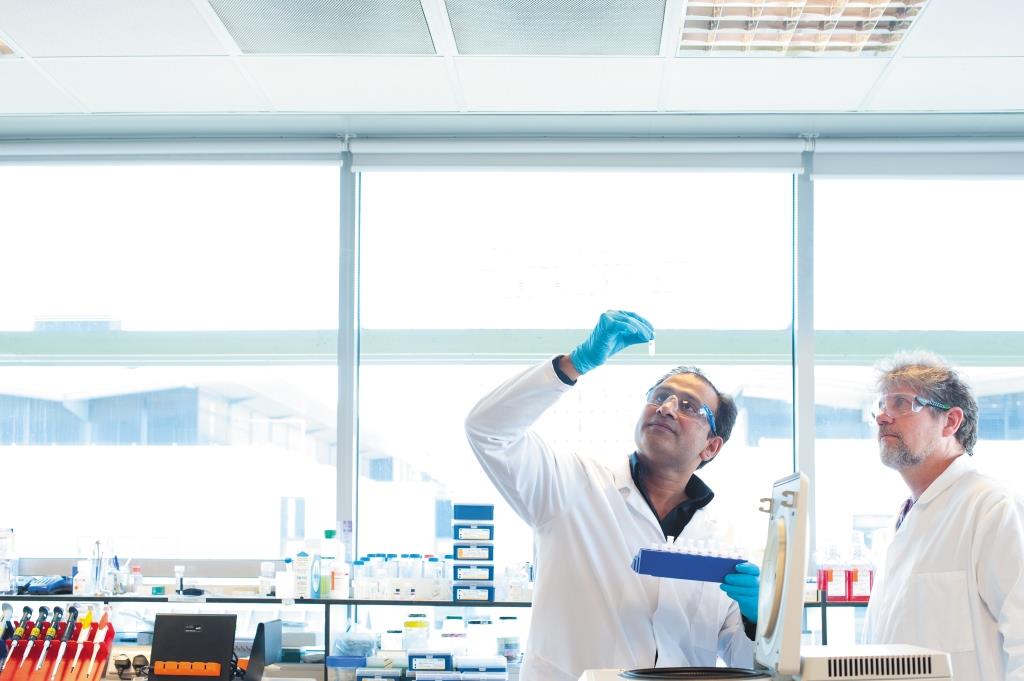
July 22, 2016, by Lisa Chin
Personal perspectives on successful postgraduate student supervision
This post is written by Professor Nashiru Billa, Associate Dean (Research), Faculty of Science.
Colleagues who have supervised postgraduate (PG) students to completion would agree that PhD supervision is a serious business encompassing complex processes and issues related to the intellectual development of and emotional support for the student. For this reason, the University Quality Manual requires that each student has at least two supervisors. A further safeguard is that, academics supervising students for the first time can only do so in a joint supervisory arrangement. There are instances where academics with no prior supervision experience have served as principal supervisors to PhD students with positive outcomes. On the other hand, there are instances where supervisory issues have become apparent from more regular academics. In my opinion, requisite skills necessary for successful postgraduate supervision are not always commensurate with experience, as long as the needs of the student are central within the context of the supervisory arrangement. Whilst it is true that PG students should be independent and be at the forefront of their work, this expectation should be gradual rather than exponential. Supervisors should be cognizant of the fact that students enrol on the PG program with a varied level of experience or exposure. Therefore it is fair not to expect all students to perform at the same set of standards, especially during this maiden stage of their research experience. PG students enrolling after undergraduate qualification (however good their credentials), require significant levels of supervision initially followed by gradual detachment so that the student progresses from significant dependence to autonomy at the time of thesis write-up. Personally, I prefer students who enrol to the PhD programme with a postgraduate degree or equivalent because of the tag of prior research experience. It makes the task of supervising less daunting. Student-supervisor relationship is just as important to ensuring a successful doctoral research experience. It has the potential to be enriching and productive to the student whilst at the same time, can be extremely difficult and frustrating. As academics, we have the tendency of equating ‘research supervision’ with ‘research training’. The former is more of mentoring and requires supervisors to have situational awareness and flexibility in the student-supervisor relationship. In a major study carried out by Cullen et al (1994) at the Australian National University, a list of characteristics considered as ‘ideal’ for supervisors to succeed are listed below, which strikingly are similar to what undergraduates hold as desirable characteristics of ideal teaching:
- Approachable and friendly
- Supportive, positive attitude
- Open minded, prepared to acknowledge error
- Organised and thorough
- Stimulating and conveys enthusiasm
Supervisor expertise also plays a significant role in a successful PhD student experience and has been a criterion for selection of prospective students. However, it is also true that non-expert related characteristics which provide support balanced with creative criticism can supersede expertise-related characteristics. To summarise, as supervisors, we need to engage with students in a manner that stimulates thought, openness and independence. The relationship between the two should be cordial and bound by mutual respect. I believe that these attributes make up for any shortfalls there might be and would ensure a successful research experience.
Reference
Cullen, D., Pearson, M., Saha, L. J., & Spear, R. H. (1994). Establishing effective PhD supervision. Canberra: AGPS.
-
Post a comment
